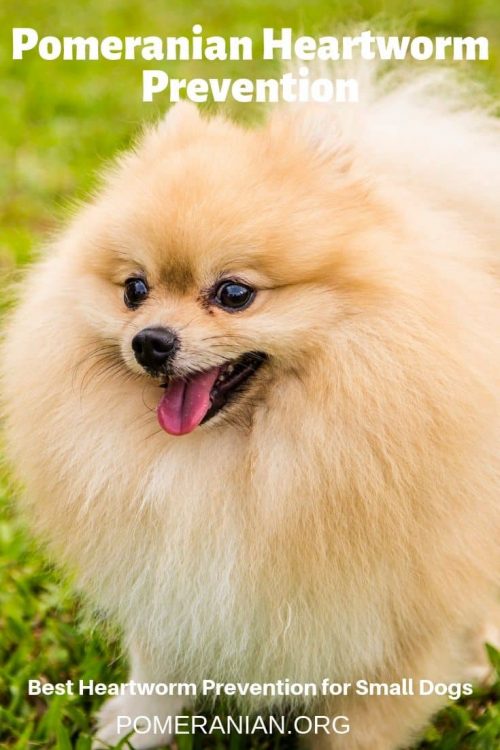Last Updated on 21/06/2020 by Denise Leo. Post first published on June 26, 2019.
When it comes to heartworms, there are several popular myths that many believe to be true even though they’re untrue:
- Only older dogs or those that have been badly treated will attract these worms.
- Heartworms is such a rare disease that you don’t need to worry about it at all.
Here are some important facts to learn if you have a canine family member:
All dogs can end up with heartworms, whether a puppy, a senior dog, or anything in between.
Contracting heartworms is much riskier in the warm months because mosquitoes exist in the greatest numbers.
There’s only one way for a dog to get heartworms; via female mosquitoes if they’re infected with the heartworm larvae. After they get into a dog, they grow into an adult and create congestion in the heart and, sometimes, also the lungs.
In the US, approx. 1.1 – 1.3% of all canines receive a positive test result for heartworms. While the ratio might seem low, it still represents over 100,000 dogs.
Dogs don’t show any symptoms after the heartworm enters the body. It’s only after they have completely invaded the dog’s body, that symptoms such as: fatigue, chronic coughing, reduced appetite, lost weight, and, eventually, heart failure and death.
If the dog can be given treatment in time, it’s still dangerous. He’s given large doses of powerful pesticides and/or possibly operating to physically remove as many worms as possible.
Heartworm Medications
All heartworm medications are pesticides. They can’t prevent a dog from receiving larvae. However, after the larvae are in the body, the drugs kill it prior to full maturity into worms. This means all prescribed Pomeranian heartworm medications are risky to use, some more serious than others.
Here are prescribed drugs you may need for your Pomeranian dog:
Ivermectin. This is an ingredient in Heartgard and other drugs. Its side effects can include: seizures, pain, balance and sight problems, lameness or paralysis in one or more limbs.
Pyrantel pamoate. This pesticide often gets added to specific heartworm meds to also kill hookworms and roundworms. It’s an ingredient in Heartgard Plus and other meds. When combined with Ivermectin, this is one of the most toxic drugs and its 11th most common “side effect” is the death of your Pomeranian.
Milbemycin oxime. There are serious concerns regarding whether this drug is effective. One study reported that 9000 dogs given this drug contracted heartworms.
Death is the 13th top “side effect” of this drug. This is an ingredient in a number of drugs including: Sentinel, Trifexis, Sentinel Spectrum and Interceptor.
Selamectin. Among dogs that have been given this medication, 6000 dogs were found to have heartworms, more than 600 dogs had seizures and nearly 1800 dogs were badly vomiting. It’s an ingredient in Revolution and a few other drugs.
ProHeart 6. This is moxidectin in an injectable form. After four years on the market, it had to be recalled because more than 500 dogs died. It was put back on the market in 2010 and has had 496 deaths since that date, with the count still going.
Heartworm Prevention
Heartworm medications can help prevent an infestation but there are powerful drugs used and they can create serious bad side effects. It’s better to use safer methods where possible so you can reduce the months that you need to give your dog or you can use low doses.
There are 3 major ways to prevent heartworms:
1 – Always Give the Correct Dose
Work out the ideal dose of the heartworm drug dose to suit your Pomeranian, remembering he’s a small dog.
The Heartworm Society of America suggests that you should be using heartworm medication all year. However, the only method of transmission is mosquitoes and they hibernate in Winter. So, is it really necessary to dose your dog every season?
Talk to your vet about the doses to use because there are variables to consider:
You might not be living in an area that is endemic to the mosquito. If unsure and you live in the US, check out populations of mosquitoes on an AHS Heartworm Incidence Map.
If you’re living somewhere with cold winters, you might stop the meds after you have had the first frost and then resume treatment before the Spring weather hits 50 F.
Choosing the right dose is calculated according to your dog’s weight. Puppies should receive half a dose and Pomeranians should be weighed to make sure they get the lowest possible dose.
It’s common to give your dog the meds every four weeks but you may be able to stretch it out to every six weeks after consulting your vet.
Heartworm prevention is never guaranteed so you need to test your Pomeranian at least one time each year but 2-4 times is ideal. One reason is that if you’re giving your dog meds for larvae and he has adult worms, he can die.
Special note: Some vets receive financial incentives to suggest and prescribe particular drugs. If yours is suggesting a brand with serious side effects or a high death rate, this should be a major red flag. They include the five drugs previously mentioned.
All Heartworm Prevention Medication is Dangerous
However, there is one that toy breeds find more tolerable; Advantage Multi (imidacloprid and topical moxidectin), because this one has a lot less reported serious side effects than others. Typical symptoms include: upset stomach, lethargy and a skin reaction where it’s applied, so keep your eyes peeled for these issues.
Advantage Multi does need a prescription but the good news is that it also prevents whipworms, hookworms, sarcoptic mange, roundworms and it kills fleas. If you choose this drug, the lowest weight is 3-9 lbs. then medium from 9.1 – 20 lbs.
Talk to your vet about the right dose. If your Pom is just over 9 lbs., he’ll need the small weight dose. If he weighs 12 – 15 lbs., he’ll need less than the full medium dose.
[easyazon_image align=”center” cart=”y” cloak=”y” height=”500″ identifier=”B003SLM560″ locale=”US” localize=”y” nw=”y” nf=”y” src=”https://images-na.ssl-images-amazon.com/images/I/51HyW63ueWL.jpg” tag=”petgal-20″ width=”364″]
2 – Reduce The Mosquito Population Where You Live
Mosquitoes tend to live within an acre of their birthplace so if you can stop them breeding near your home, there will eventually be less to cause your Pomeranian any harm.
Mosquitoes prefer living in damp places, frequently near water or beneath leaves. They reproduce by laying their eggs in bodies of still water. These insects live in every state in the US, including Arizona (approx. 40 species) and Alaska (more than 35 species).
Chemical-free Methods for Decreasing Their Numbers
Get rid of all debris in your yard where rainwater can sit, including plant saucers, old tires, pails, kids’ toys and so on.
Clean all your gutters so debris doesn’t build up and prevent the flow of water.
In places where you can’t stop water from accumulating (big depressions in your yard, ditches, koi ponds, bird baths, etc., use Summit Mosquito Dunks (or a similar product). They’re disks that have organic material deadly to larvae of mosquitoes but 100% safe to animals and birds.
3 – Insect Repellent Safe for Dogs
Find a safe insect repellent for dogs and put it on your Pomeranian. While it’s impossible to kill every mosquito in your yard and outside it, you can use the repellent on your dog to help reduce the population…and then tell every other dog owner you know to do the same.
[easyazon_image align=”center” cart=”y” cloak=”y” height=”500″ identifier=”B00HS3QE7U” locale=”US” localize=”y” nw=”y” nf=”y” src=”https://images-na.ssl-images-amazon.com/images/I/31q7xk12HrL.jpg” tag=”petgal-20″ width=”355″]

Copyright Pomeranian.org. All Rights Reserved.
References and Further Reading:
[1] Denise Leo “The Pomeranian Handbook”.
Disclaimer: The Content is not intended to be a substitute for professional veterinarian advice, diagnosis, or treatment. Always seek the advice of your veterinarian with any questions you may have regarding the medical condition of your dog. Never disregard professional advice or delay in seeking it because of something you have read on ANY website.







